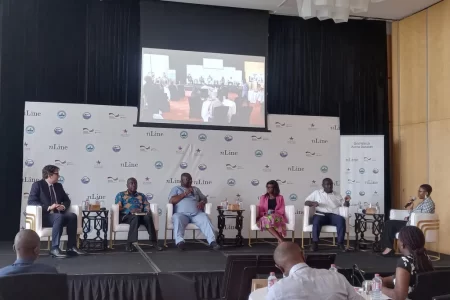With a nationwide coverage of electricity estimated at 88.85 per cent as at 2023, Government of Ghana has made significant gains with providing access throughout the country particularly in underserved communities. The power generation sector has undergone evolution over the years with reforms implemented in the sector since the 1980s helped in transforming the industry by removing barriers and opening the market to Independent Power Producers (IPPs).
Director of Monitoring and Evaluation at the National Development Planning Commission (NDPC), Dr. Opare-Djan Nana, has indicated that by the year 2057 Ghana would have achieved its target of 100 per cent universal access to electricity. He said, as part of a long-term development strategy being developed by the NDPC, the future of the energy sector lies in private capital investment to ensure the country generates the needed energy required. According to him, the recently launched “vision 2057” of the government lays out a plan for the energy sector especially in the areas of generation, distribution, investment and standards.
Dr. Opare-Djan, who is also the transition coordinator for post compact monitoring and evaluation activities at NDPC, was speaking during a panel discussion at the Accra Power Quality and Reliability Dataset (“GridWatch Dataset”) launch on Monday as part of the Ghana Compact under the Millennium Challenge Account (MCA) programme with the United States Government. He noted that, Ghana’s ever-growing population requires reliable power for households and businesses which puts the current capacity under a lot of stress, therefore NDPC has developed a Ghana Infrastructure Plan to deal with energy infrastructure across the country.
He said, “We have in place what we call the Ghana Infrastructure Plan. And the Ghana Infrastructure Plan has one particular pillar which deals with energy infrastructure across the country. We plan with the energy sector actors; provide the needed information to all the players within the energy sector. Normally and usually, what we do is that in preparing one particular facet of a plan, we bring all the actors to play. So in terms of the infrastructure plan for energy, we bring the energy players to discuss what the needs of the population will be. We know that there has been growth in population, but energy needs have been dipping. We want to ensure that the needs and how we provide for those needs of the population will be made available.”
The GridWatch Dataset was developed by a US-based research firm, nLine Inc., and supported by a team of field staff in Ghana. The data contains granular measurements of power quality in 14 districts of the Electricity Company of Ghana (ECG) across the Greater Accra Metropolitan Area. Over the period of 4 years, about 1,400 sensors were deployed with permission from ECG to measure the performance of transformers at locations monitored. The sensors are plugged into an outlet and communicate in real time whether or not there is power at that ECG outlet, the voltage quality at that outlet and the frequency of the grid at the outlet for any action by ECG personnel.
The Co-founder and CEO of nLine Inc., Noah Klugman, was excited to release the dataset to support ongoing efforts of ECG, Government of Ghana and all other stakeholders in making the grid as strong as possible across the country. According to him, “by providing accurate, real-time data, our GridWatch Suite can support stakeholders with critical tools to address the longstanding challenges of power reliability in Ghana’s power sector and enhance the quality of life for millions of Ghanaians.”
“To release this data, we needed a lot of permissions and a lot of work to ensure that everything that we’re doing and everything that we’re releasing is factual. All of this data was collected automatically by our sensors, and all of the analysis that was done was done without a bias based on the underlying statistical qualities of the data. So, we’re hopeful that by releasing the raw data set and making it more publicly available, that this data can be taken further.”, He added
Expressing his appreciation for the project, a Technical Officer of the Network Projects Directorate at ECG who doubled as manager for LV Bifurcation under the Ghana Compact, Ing. Samuel Nee Abbey, was upbeat about the usefulness of the data released by nLine to the work of ECG.
“We in ECG are very much interested in data of this nature. Simply because before we embark on a project, we always evaluate the current situation in that locality before we embark on a project to improve the network. But having the data of this sort is going to enhance what we do by way of knowing which areas we need to go and then improve the network before and after we embark on the project.”
Source: Ceditalk

